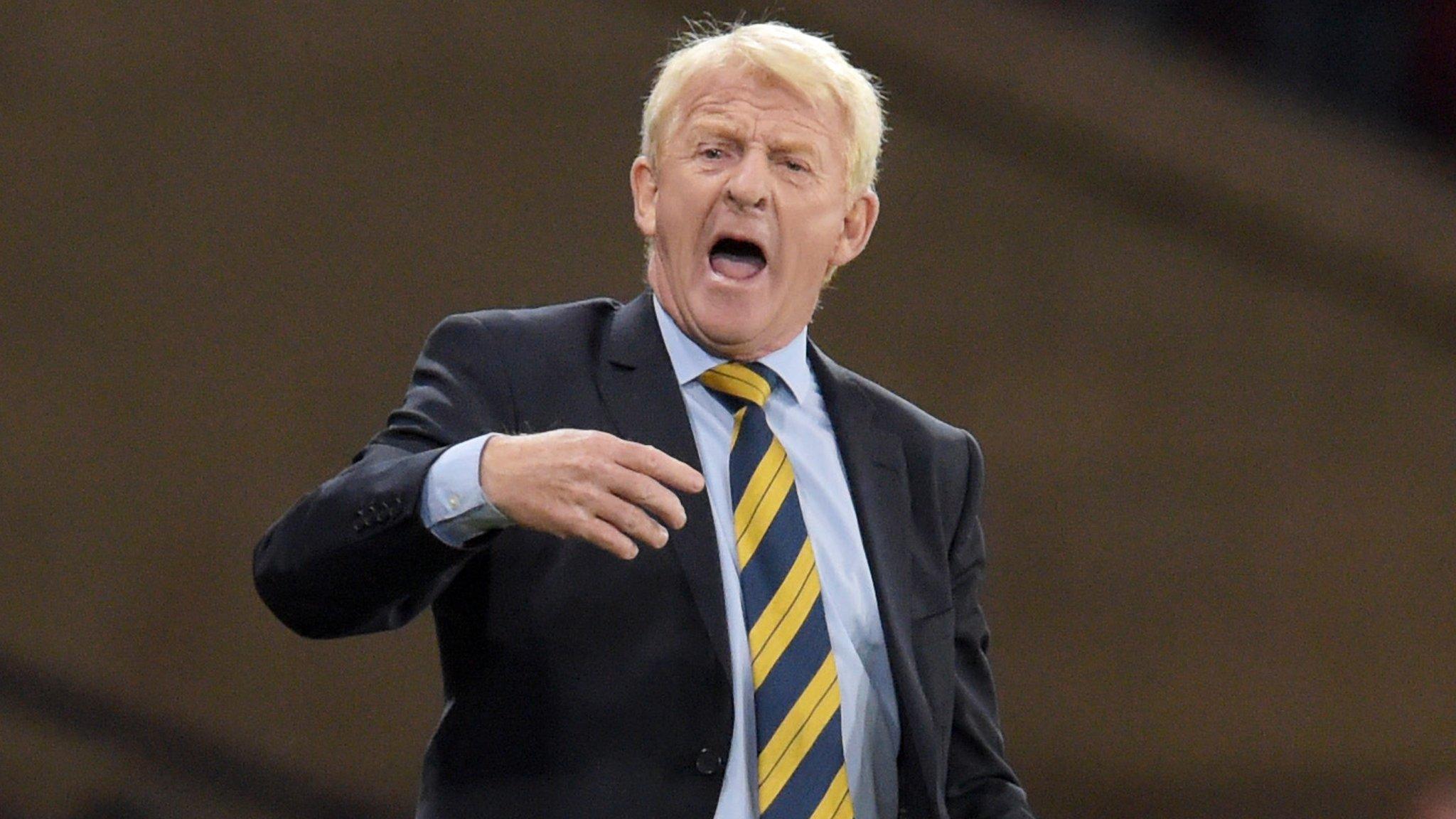Gordon Strachan's departure from Scotland job was the right decision
- Published
- comments
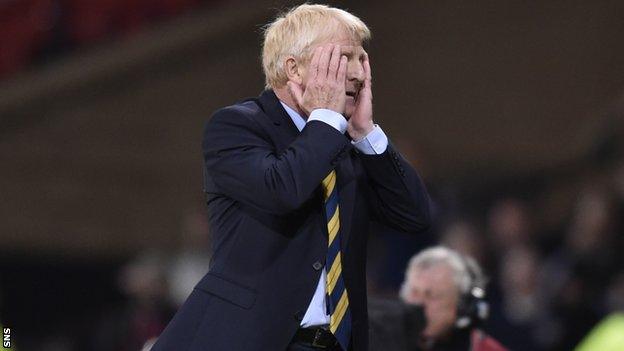
Gordon Strachan spent almost five years in the Scotland hotseat
Gordon Strachan made a dignified exit from his post as Scotland manager, thanking those who needed to be thanked, expressing regret at not having done what he set out to do.
There were no excuses because he didn't have any left to give. Despite the supporting words of the managerial fraternity in the past few days, Strachan had used up all his lives and had to go.
Sunday in Slovenia was the last act, a game that had ruinous consequences for Scotland's World Cup hopes and for Strachan's dream of taking his country to a major championship.
There was such a positive backdrop as well; a run of matches unbeaten, a fantastic last-gasp victory a few nights before, a gathering sense of something special about to happen.
What's that they say about hope being the thing that kills you? The night ended in failure on the field and embarrassment off it.
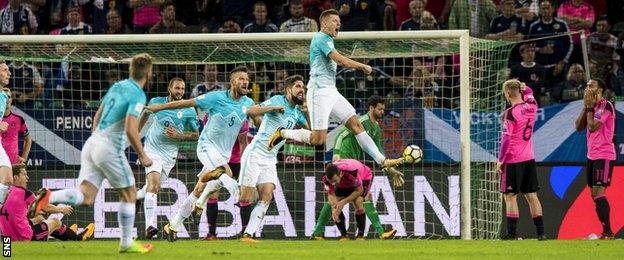
Roman Bezjak scored Slovenia's second goal as Scotland's World Cup play-off hopes ended in Ljubljana
Strachan's chat about genetics in the aftermath was a cringe-making moment that made him the object of ridicule. Martin O'Neill and Michael O'Neill, the respective managers of Scotland's Celtic cousins in Dublin and Belfast, might even have laughed at that one.
Over the past year, Michael O'Neill has given international call-ups to players from the following clubs. Linfield, St Johnstone, Millwall, Burton Albion, Dunfermline, Kilmarnock, Charlton, Bradford, Motherwell, Oldham, Shrewsbury, Doncaster Rovers, Dundalk and Wigan. In Slovenia, Strachan had two Champions League players sitting, unused, on his bench.
The Irelands haven't exactly been fielding physical specimens these past years. They're not picking from a freakish gene pool nor have they a single player of anything approaching world class. And yet both O'Neills took their teams to the Euros and both have made the play-offs for Russia.
For a long time now, Strachan has come out on the wrong side of the comparison between the Republic and Northern Ireland. On paper, Scotland are probably better than the pair of them. In reality - in the business of constructing gameplans and grinding out results - Strachan hasn't been good enough.
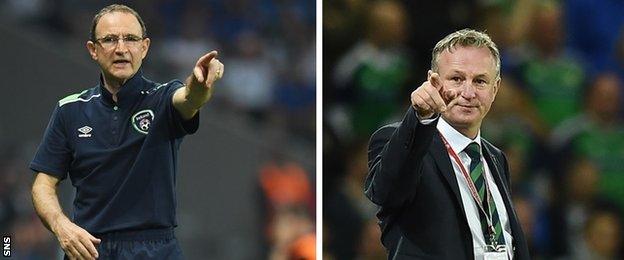
Martin O'Neill and Michael O'Neill have guided the Republic of Ireland and Northern Ireland to Euro 2016 and the World Cup play-offs
This was the right decision, but as the day wore on you wondered if the Scottish FA were going to get there. This is an association that were in thrall to Strachan, even when he failed to get Scotland into the play-offs for Euro 2016, the most easily accessible major football championship in history.
In the wake of that dismal exit, Stewart Regan, the chief executive at Hampden, greeted Strachan's decision to stay on for another campaign as a coup. Metaphorically, Regan and his board threw rose petals at Strachan's feet when he re-committed to the national cause. It was bizarre.
Strachan's exalted status in the eyes of his employers was seen again in their support of him after a grim beginning to the World Cup campaign. A home draw against Lithuania was downplayed. Strachan himself said we would have to wait until the end of the qualification series to see if it was a good point or a bad point. The SFA went along with that.
They also backed their man when Scotland got routed in Slovakia and then got well beaten at Wembley. Back-to-back 3-0 defeats put Strachan in the firing line again. There was chat back then that he was going to walk away, but he didn't. Again, the pom-poms were brought out at Hampden.
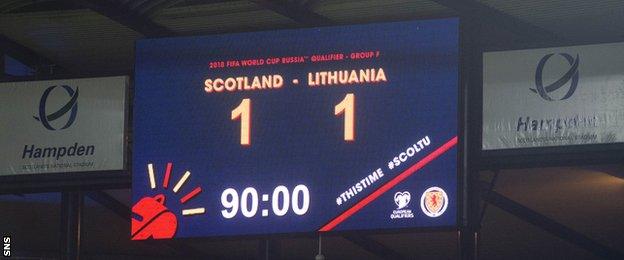
James McArthur's 90th-minute goal salvaged a draw against Lithuania at Hampden Park
"We are not going to be swayed by social media," said Regan. "We are not going to be bounced by a kangaroo court - we are going to give Gordon a chance."
A kangaroo court? The put-down of Strachan's critics was illustrative of Regan's mindset. Mike Mulraney, a member of the SFA board said: "Do I think we can qualify? Yeah, I think we can qualify. He [Strachan] is convinced he can get us into a play-off place. Gordon is convinced he can do it."
Alan McRae, the president of the SFA, said the same. So, too, Rod Petrie, another member of the board.
For a while, as results improved, it looked like their gamble was a wise play. Scotland went on a run. They beat Slovenia at the death, they almost beat England, they took care of Lithuania and Malta and then won an epic against Slovakia at Hampden to set up that dramatic last day against Slovenia.
The renaissance came on the back of Celtic's progression under Brendan Rodgers. Strachan, correctly, fed off that. He started to pack his team with confident, experienced Celtic players. In Vilnius, against Lithuania, there were six of Rodgers's team in Strachan's starting line-up.

Many observers wanted to see Callum McGregor and John McGinn given a chance in the national side
Leigh Griffiths was one of them - and herein was Strachan's problem in microcosm. At the start of the World Cup qualifying campaign - and for much of the Euro 2016 campaign - there was huge support for Griffiths to start for Scotland. The more backing he received, the less likely he was to get the nod from Strachan.
There was a stubbornness there, and it defied logic. Before that 1-1 draw with Lithuania - it was always a bad point and never a good one - Griffiths had scored eight goals in 12 games for Celtic, including five in the Champions League qualifiers. Incorporating the previous season, he had scored 48 goals in 65 games. He was quite obviously the most dangerous striker Scotland had. Possibly the only dangerous striker Scotland had.
He started on the bench against Lithuania. Chris Martin, with one goal in his previous 21 games, started ahead of him. Griffiths came on to the field with 19 minutes left. He was the third and last substitute that Strachan made that night.
Griffiths was a substitute again when Scotland went on to play Slovakia away. Steven Fletcher, another big man up front, began that match. Genetics didn't get the job done. Scotland were 2-0 down - and were just about to go 3-0 down - when Griffiths was sent for Darren Fletcher.
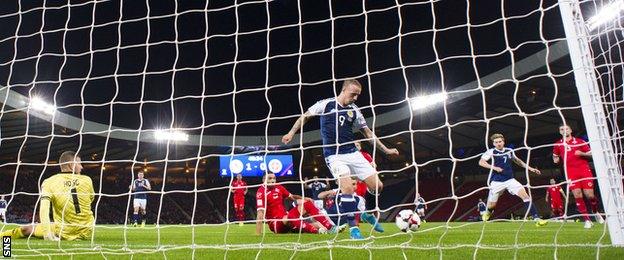
Leigh Griffiths eventually fought his way into Strachan's first team and quickly proved his worth
Since Strachan put him in the team, Griffiths has been as close to a machine as Scotland have had in front of goal for quite some time - four goals and three assists in seven games. You think back to Hampden and Lithuania and wonder what might have been.
For sure, Strachan was unlucky to lose Scott Brown and Stuart Armstrong for the final games of the campaign. He had options, though. Once more, a bandwagon formed behind Callum McGregor and John McGinn, the in-form midfielders from Celtic and Hibs - and once more Strachan went against the flow.
In Slovenia, when leading 1-0, Scotland retreated when they should have advanced. Everybody could see it happening; a team that saw the finishing line and started to panic. In the aftermath, Strachan spoke about genetics and a nation covered its eyes in mortification.
Strachan didn't achieve his ultimate goal, but the team, and the squad, is better now than it was when he took it over. He moved things forward, no question. He just couldn't move it forward enough.
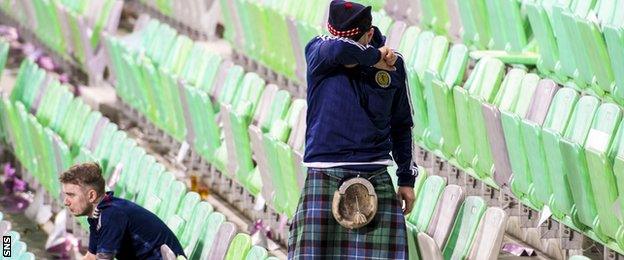
The Tartan Army were left to deal with yet another qualification failure despite the side's recent fine run
For the longest time, there's been a fatalism in Scottish football about a lack of players and a lack of hope, an attitude that said, 'We don't have the talent so it doesn't matter who's managing the side'.
It's self-defeating nonsense. It's the kind of talk that was all the rage in Ireland when the O'Neills took over. Look through the playing rosters at the Republic and Northern Ireland, compare them to Scotland's and then ask yourself this: 'Is there any reason why Scotland can't do what they have done?'
With the right manager, the answer is an unequivocal, emphatic 'No'.
- Published12 October 2017
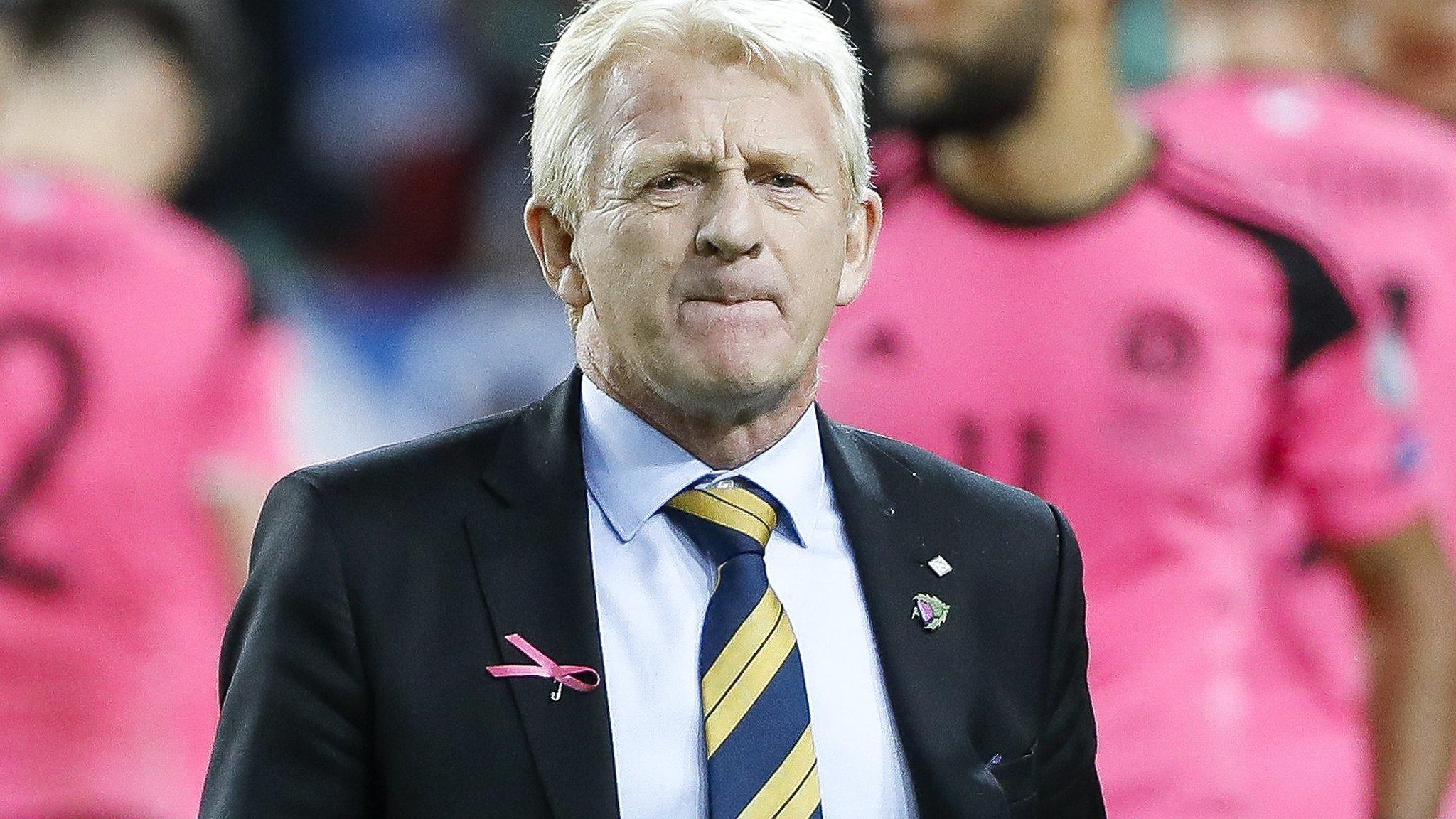
- Published12 October 2017
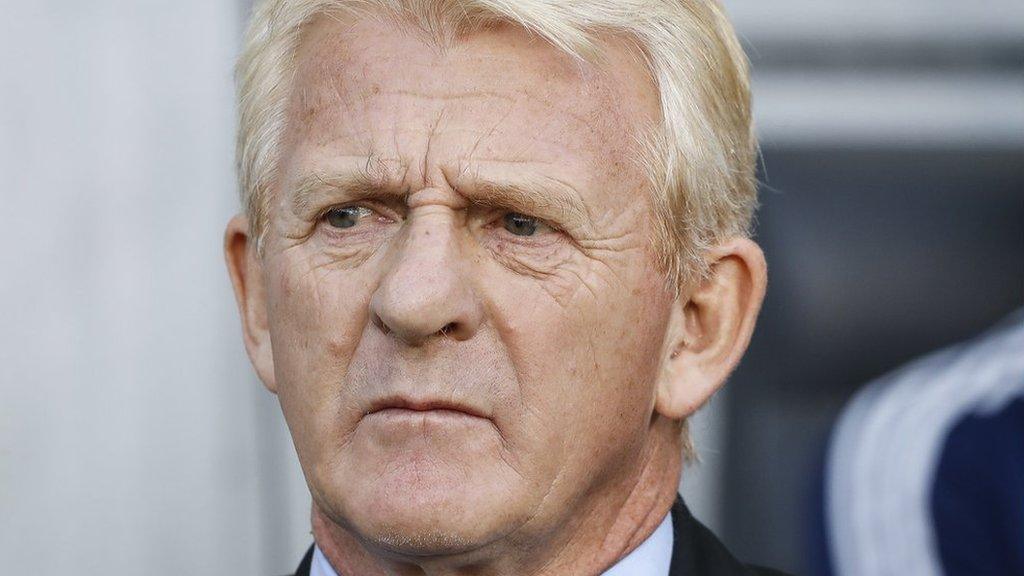
- Published12 October 2017
